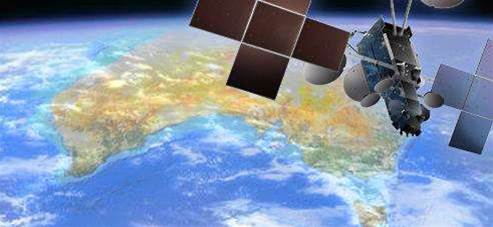A government research bureau has put forward its case for a new levy on Australia's biggest telcos to help fund the satellite and wireless components of the national broadband network.

In its response to the Vertigan review last December, the federal government said it would task a newly-formed research group within the Department of Communications with looking into alternate ways to fund the rollout of the NBN to unprofitable regional and remote areas.
The move came as the Government dumped uniform national wholesale pricing and internal cross-subsidies as the primary means of ensuring equivalent broadband services nationally, in favour of a price cap and direct subsidy aimed at the same objective.
It said at the time the revised approach would give NBN Co "increased flexibility" and improved ability to compete with rival operators of high-speed broadband networks.
The communications research bureau was asked to recommend a model for a more "competitively neutral contribution mechanism" to fund the NBN in regional areas where the rollout incurrs more costs than revenue.
A price cap on wholesale rates alone would not be enough to subsidise the costs of the regional rollout, it found.
"While NBN Co may be able to increase its revenue in fixed line areas by selectively pricing below the cap to meet competition, any increases are not expected to be significant," it wrote in its consultation paper [pdf], published late last week.
"Further, price cap flexibility is unlikely to boost revenues in non-commercial areas as pricing is in general already well below costs."
The research group put forward its case for an industry tax to be levied on telecommunications companies using NBN infrastructure in regional areas to help fund the non-commercial rollout.
For the ten years from 2011, the NBN fixed wireless and satellite services are estimated to have a cumulative negative cashflow of as much as $5.3 billion.
It would take more than 17 years to cover the $8500 average cost to pass and connect an NBN satellite service, based on the average estimated revenue of $40 per month, the paper stated - longer than the expected 15-year service life of the satellite.
Any levy would be proportionate to a telco's qualified revenues, the research group wrote. It suggested introducing a $25 million revenue threshold for the levy, as exists for the universal service obligation (USO).
The funding would apply to other owners of high-speed networks that operate in commercially viable areas, the group stated.
The definition of a "high speed broadband access network" could be taken to mean those that target residential and small business customers and which offer download speeds of at least 25 Mbps via a fixed line, the bureau suggested.
Telcos would be expected to recoup the levy from customers through higher prices.
"The introduction of NBN non-commercial service funding will support greater competition in the wholesale broadband market by creating a level playing field," the research group wrote.
"Contributions from eligible industry participants towards non-commercial services in effect give NBN Co flexibility to reduce pricing while still being able to deploy and maintain NBN non-commercial services."
Interested parties have until June 1 to lodge submissions on the proposal.


_(28).jpg&h=140&w=231&c=1&s=0)
_(20).jpg&h=140&w=231&c=1&s=0)
_(23).jpg&h=140&w=231&c=1&s=0)






 iTnews Executive Retreat - Security Leaders Edition
iTnews Executive Retreat - Security Leaders Edition
 iTnews Benchmark Awards 2026
iTnews Benchmark Awards 2026
 iTnews Cloud Covered Breakfast Summit
iTnews Cloud Covered Breakfast Summit
 The 2026 iAwards
The 2026 iAwards












_(1).jpg&h=140&w=231&c=1&s=0)



